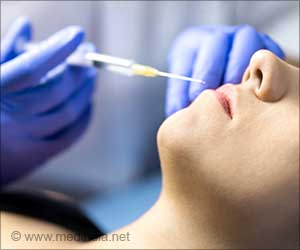Eggs are packed with a rich source of nutrients that supply the essential requirements needed to start an energetic day.
Why eggs for breakfast? Good question. Well, why not? Eggs are an ‘egg-ceptional’, practical, convenient and an inexpensive source of nutrients with less than 80 Kcal. They are packed with proteins, iron, calcium, riboflavin, vitamin B12, vitamin B6 and vitamin Dselenium, folate, zinc, potassium, magnesium and other essential minerals. Except for the absence of vitamin C and fiber, eggs contain practically all the essential requirements needed to start an energetic day, or enough nutrition to supply every nutrient for a developing chick!
It is a myth that eggs increase cholesterol levels in blood: Many health experts had earlier sidelined eggs, because of food fads such as “they cause an increase in cholesterol level”. On the contrary, diets rich in saturated fat and not dietary cholesterol, are what influence blood cholesterol levels. People on a low-fat diet can eat one or two eggs a day without measurable changes in their blood cholesterol levels. This information is supported by a statistical analysis of 224 dietary studies carried out over the past 25 years that investigated the relationship between diet and blood cholesterol levels in over 8,000 subjects.Eggs Promote Weight Loss: That’s right! It’s good news! There is enough evidence that the high protein content of eggs, with less than 80 Kcal may play a useful role in weight management and dieting. This is because of a greater satiety and a better feeling of fullness compared to bagels and other breakfast cereals due to a high protein content in eggs, while reducing calorie intake throughout the day and over the following 36 hours. Interestingly, blood cholesterol levels remained unchanged in this study.
Eggs for Brain and CNS Functioning: Eggs are a high source of choline. Although our bodies can produce some choline, it needs to be supplemented by our diet, as it is inadequate in quantity. Its deficiency can also result in the deficiency of folic acid. Two molecules in the brain, phosphatidylcholine and sphingomyelin are present in high percentage in the brain, so choline is particularly important for brain function and health. It is also important in a cellular process called methylation, responsible for the genetic make up of the body. Choline is also a key component of acetylcholine, which is a neurotrasmitter that carries messages from and to the nerves; acetylcholine is the body's primary chemical means of sending messages between nerves and muscles.
Choline in Eggs reduces Inflammation: Egg yolks and soyabeans are a high source of choline and its metabolite betaine. Choline lowers the levels of inflammatory markers such as homocysteine, C-reactive protein and alpha tumor necrosis factor which are responsible for conditions such as heart disease, osteoporosis, cognitive decline and Alzheimer's, and type-2 diabetes. Choline and betaine work together in the cellular process of methylation, which is not only responsible for the removal of homocysteine, but is involved in turning off the promoter regions of genes involved in inflammation.
Choline in eggs for pregnant and breast feeding mothers: Eggs are an easy and convenient source of choline which is necessary for the brain and memory development in the fetus and breast fed babies.
Eggs and Heart Health: Choline is responsible for cardiovascular health as it reduces the homocysteine levels in the blood. Homocysteine is a deadly substance which when built up, not only damages the blood vessels, but also causes stroke and other cardiac problems like heart attacks. Eggs are also an excellent source of other B complex vitamins which prevent homocysteine build up.
Eggs for Eye Health: Eggs are a richer source of bioavailable lutein compared to green vegetables such as spinach or other forms. Lutein is a carotenoid protecting against age-related macular degeneration and cataracts. Eggs also protect eyesight as the egg-yolk is a rich source of vision-protective carotenoids, including not only lutein but also zeaxanthin which reduces the risk of developing age-related macular degeneration (AMD). In AMD, the macula, the central part of the retina, which controls fine vision, deteriorates, greatly limiting eyesight or even resulting in blindness in those afflicted.
The ‘eggs-quisite’ value of eggs cannot be underestimated. So enjoy your egg in any form and have an ‘eggstra’-ordinary day!
Source-Medindia









